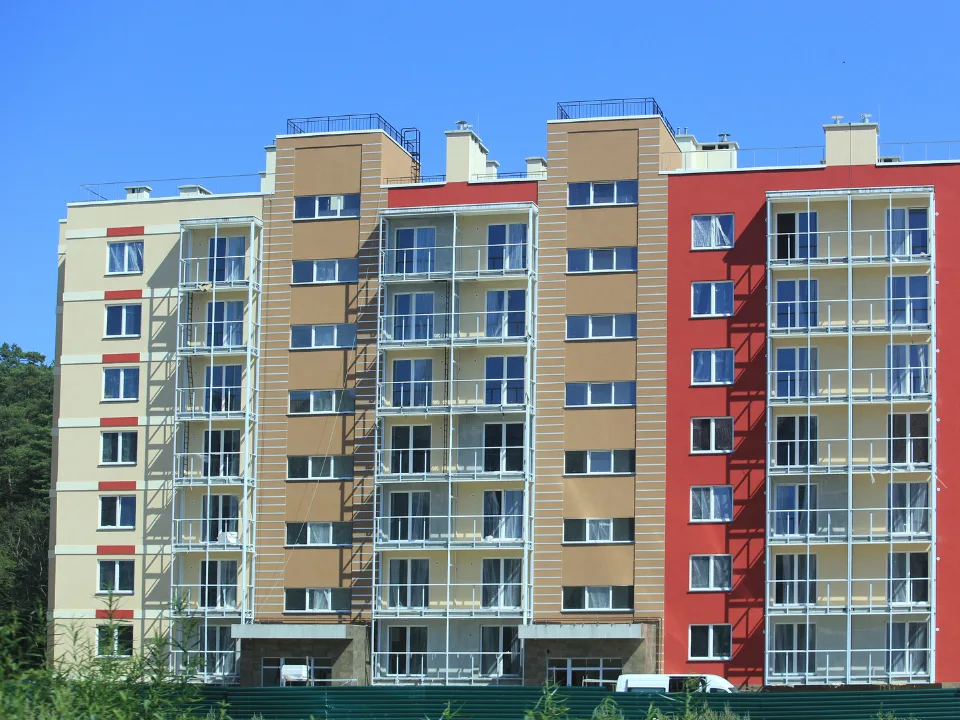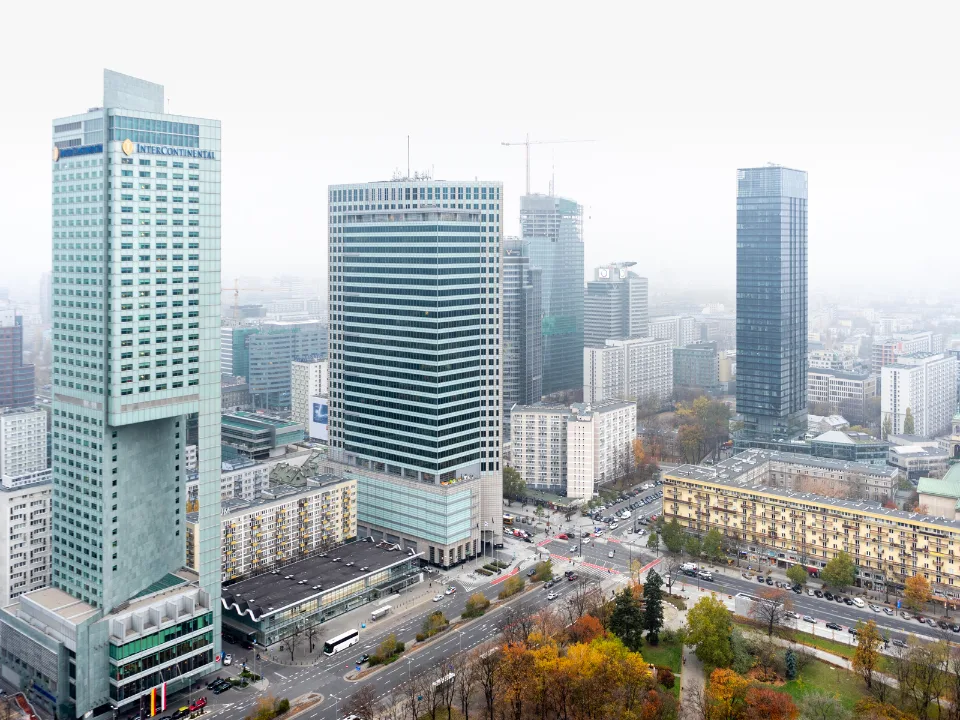NYC Board Approves Rent Hike for 1M Stabilized Apartments
Rents for NYC’s approximately one million rent-stabilized apartments will increase by 2.75% starting this fall.
Good morning. Rent hikes for NYC’s stabilized apartments could attract more investors to these buildings. Plus, skyrocketing insurance premiums are squeezing condo associations, hiking up fees, and complicating sales.
Today’s issue is brought to you by InvestNext — meet the platform that empowers you to raise capital your way.
🔔 You currently have 0 referrals, only 1 away from receiving B.O.T.N Multifamily Deal Screener .
Market Snapshot
|
|
||||
|
|
*Data as of 6/17/2024 market close.
Rent Guidelines
NYC Rent Board Set to Increase Rent for Stabilized Apartments – Again
Rents for NYC’s approximately one million rent-stabilized apartments will increase by 2.75% starting this fall. Both tenants and landlords are dissatisfied.
What happened: The New York City Rent Guidelines Board has approved rent increases for nearly one million stabilized apartments. Effective in October, rents for one-year leases will rise by 2.75% and two-year leases by 5.25%. The decision sparked immediate protests from tenants and activists, who demonstrated outside the board’s meeting venue at Hunter College.

Source: NYC Rent Guidelines Board
Zoom in: About 25% of NYC’s population lives in rent-stabilized apartments, with a median rent of $1,500 versus $4,250 for market-rate units. Neither tenant nor landlord advocates were satisfied with the board’s decision. The board noted landlord incomes rose by 10.4% while costs increased by 6.1%, yet many tenants spend over 30% of their income on rent.
State of play: The demand for workforce and affordable housing in New York City continues to exceed supply. Rent-stabilized properties, crucial for affordable housing, maintain strong rents and low vacancy rates. However, the value of these buildings has likely declined due to broader economic conditions.
➥ THE TAKEAWAY
The opportunity: The approved rent increase could make rent-stabilized buildings more appealing to well-capitalized investors seeking long-term assets. Despite free-market buildings accounting for 60% of multifamily transactions in early 2024, many deals involved rent-stabilized properties. Investor interest remains strong, even with challenges from the Housing Stability and Tenant Protection Act (HSTPA) of 2019, inflation, and rising interest rates.
TOGETHER WITH INVESTNEXT
Raise Capital Your Way with Flexible Deal Structures
InvestNext is the platform for raising capital in 2024.
When competing to raise capital in today’s volatile real estate investment market, flexibility is your greatest asset. The ability to structure your offerings to meet the demands of your projects and the needs of your investors is not just a convenience—it’s a necessity.
Meet the platform that empowers you to raise capital your way with support for funds, debt funds, open-ended funds, syndications, capital calls, co-sponsors, and multiple equity and debt classes in the same offering.
✍️ Editor’s Picks
-
Insurance costs: Condo associations nationwide face soaring insurance costs due to natural disasters and increased rebuilding expenses. An analysis of 1,800 associations across 44 states showed a 20% rise in condo dues from 2022 to 2024.
-
A smarter way: Across the country, many states have created new C-PACE programs to give commercial property owners a new financing tool to blend down the cost of capital. (sponsored)
-
Financial power play: The US currently accounts for one-third of all post-pandemic global capital flows.
-
Canadian blues: PSP Investments reported a -16% return in real estate for the fiscal year, the only negative return among its major asset classes.
-
Bond rally boost: A recent bond rally has boosted stocks, with the 10-year U.S. Treasury yield dropping to 4.212%. Investors anticipate more Fed rate cuts.
🏘️ MULTIFAMILY
-
Market momentum: Freddie Mac’s (FMCC) Multifamily AIMI rose by 8.7% in Q1, with property prices dropping 2.4% nationwide and mortgage rates slipping 0.56%.
-
Apartment mayhem: Multifamily occupancy rates are falling in Gulf Coast and Southeast markets, with over 749.6K vacancies nationwide, concentrated heavily in these regions.
-
Shiny new apple: New York multifamily rents are up 2.2% YTD, with a mere 3.2% vacancy rate, offering many opportunities for investors.
-
Granny flats: Starting July 18, San Jose will push accessory dwelling unit (ADU) sales as condos officially become a separate property type from primary homes under AB 1033.
-
Crane catastrophe: A crane fire at Manhattan luxury building 555 Ten caused $82.8M in damages and displaced hundreds of tenants.
-
Nashville population boom: Nashville’s growing multifamily market faces an oversupply with a 10.8% vacancy rate and 22K units under construction.
🏭 Industrial
-
Class dynamics: Prologis’ (PLD) Bay Area Market Officer states advanced manufacturing tenants pay 20–30% more than traditional logistics, staying longer.
-
Hyperscale hub: Compass Datacenters begins a $10B project for five hyperscale data centers in Hoffman Estates, IL, with local investment and utility support.
-
Expanding empire: Prime Storage expands in 10 states with 30 acquisitions totaling 1.7MSF across 3.54K units for Prime Group.
🏬 RETAIL
-
Retail reimagined: WHP Global, Simon Property Group (SPG), Brookfield (BN), and Centennial joined forces in a JV to save Express Inc. (EXPRQ), preserving 450 stores and 7K jobs.
-
Mall odyssey: Macerich (MAC) surrenders a Santa Monica Place mall after defaulting on a $300M loan, posting a $127M Q1 loss and struggling to fill stores.
-
Grocery goals: PE real estate firm Sterling Organization raised $600M for funds targeting grocery-anchored centers, with a focus on enhancing potential.
-
Retail Renaissance: Luxury retailers like Prada and Kering are buying iconic buildings for flagship stores due to rising rents and shifting consumer desires.
🏢 OFFICE
-
The greenhouse grows: Boca Raton’s Greenhouse Campus, offering modern office space for startups, sold for nearly $16M, highlighting strong market demand.
-
Refinancing success: Howard Hughes Holdings Inc. (HHH) secured $130M to refinance 9950 Woodloch Forest Drive, a 601KSF office building in Texas.
-
Disappearing DTC deals: Two DTC office buildings in Denver’s Greenwood Village sold at a significant loss, dropping up to 87% from previous prices.
🏨 HOSPITALITY
-
High stakes: A renovated Grand Hyatt (H) in Tampa Bay hits the market with a record-breaking $220M valuation and could be the most lucrative hotel deal of the year for the region.
-
Luxury relaunch: After a lengthy ownership dispute, a Four Seasons Hotel in Midtown Manhattan, which has been closed for 4+ years, is finally ready to reopen in September.
-
Retro revival: MCR Development secured $290M in refinancing through Barclays for the TWA Hotel at JFK Airport, replacing the existing $270M loan.
📈 CHART OF THE DAY
Phoenix tops the list with 4,030 new BTR completions last year, followed by Dallas (2,694), Atlanta (1,981), Austin (840), and Charlotte (714). In this 2204 outlook report from Fixr.com, experts share their insights into the build-to-rent housing market, exploring its growth, demand, and future.

You currently have 0 referrals, only 1 away from receiving B.O.T.N Multifamily Deal Screener .
What did you think of today’s newsletter? |


















